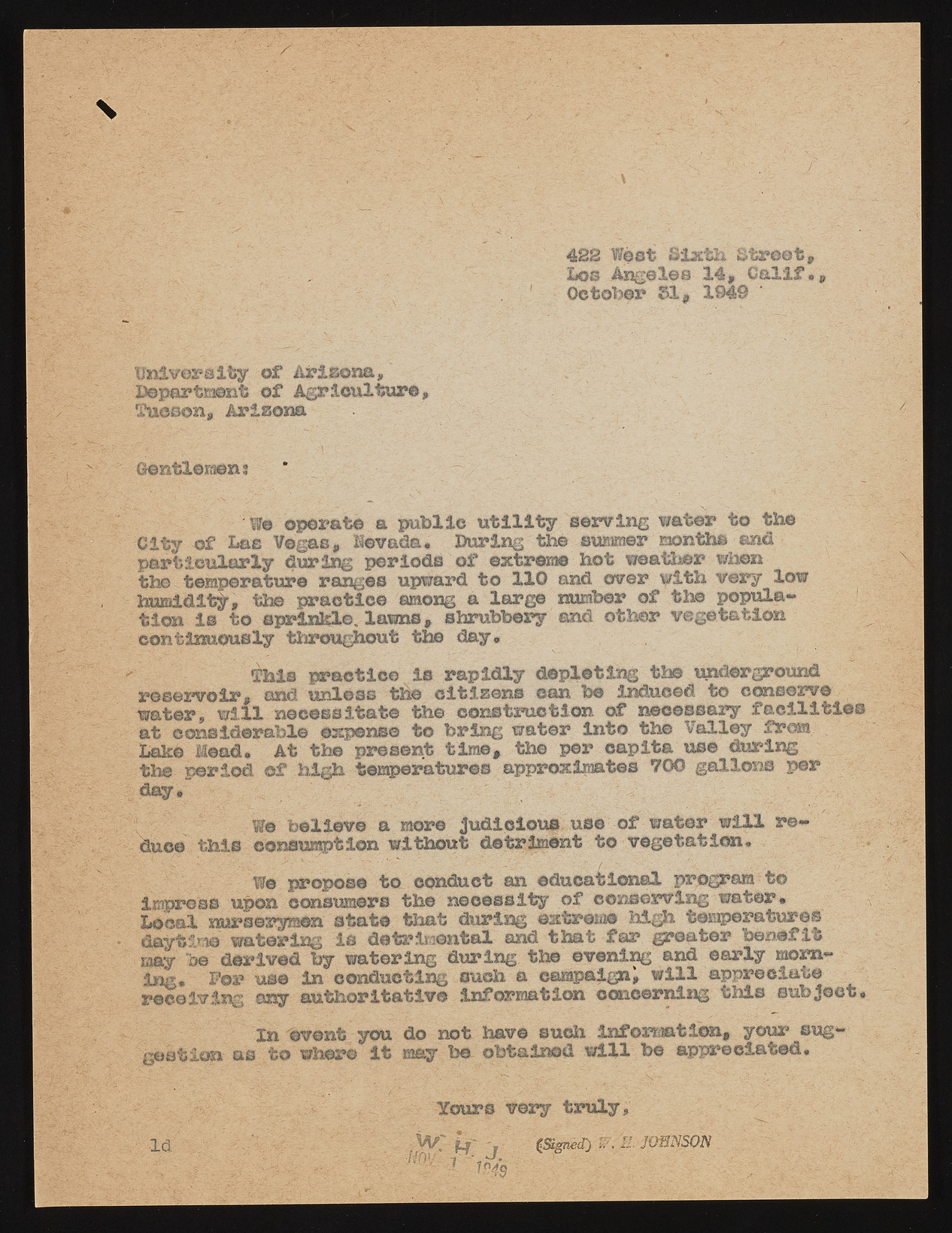Copyright & Fair-use Agreement
UNLV Special Collections provides copies of materials to facilitate private study, scholarship, or research. Material not in the public domain may be used according to fair use of copyrighted materials as defined by copyright law. Please cite us.
Please note that UNLV may not own the copyright to these materials and cannot provide permission to publish or distribute materials when UNLV is not the copyright holder. The user is solely responsible for determining the copyright status of materials and obtaining permission to use material from the copyright holder and for determining whether any permissions relating to any other rights are necessary for the intended use, and for obtaining all required permissions beyond that allowed by fair use.
Read more about our reproduction and use policy.
I agree.Information
Digital ID
Permalink
Details
More Info
Rights
Digital Provenance
Publisher
Transcription
4 2 2 W e s t S i x t h Street* Los Angeles 14* Calif.* October 51* 1949 University of Arizona* Department of Agriculture, Tucson* Arizona Gentlemen; We operate a public utility serving water to the City of Lae Vegas* Nevada. During the summer months and particularly during periods of extreme hot weather when the temperature ranges upward to 110 and over with very low humid lt|-, the practice among a large number of the population is to sprinkle, lawns* shrubbery and other vegetation continuously throughout the day. This practice is rapidly depleting the underground reservoir* end unless the citizens can be induced to conserve water* will necessitate the construction of necessary facilities at considerable expense to bring water into the Valley from Lake Mead. At the present time* the per capita use during the period of high temperatures approximates 700 gallons per day. We believe a more judicious use of water will reduce this consumption without detriment to vegetation. '? :?Z 'fi* </" 'VI ' ^ - | /> ' We propose to conduct an educational program to impress upon consumers the necessity of conserving water. i L^oal nurserymen state that during extreme high temperatures daytime watering is detrimental and that far greater benefit may be derived by watering during the evening and early m o m - lug. For use in conducting ouch a campaign* will appreciate receiving any authoritative information concerning this subject. In ©vent you do not have such information* your suggestion as to where it may be obtained will be appreciated. Yours very truly, i d M r l i i . Johnson I - ? ttOl; i ' . y . •. 1 .

